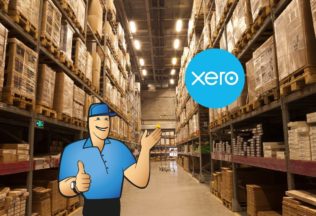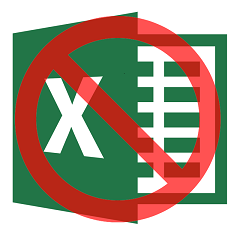What is an Enterprise Management System?
An Enterprise Management System (EMS) is a software package that supports the various requirements of complex organizations. The software allows personnel to manage multifaceted companies whose infrastructures are often scattered geographically.

You can also listen to this article:
What is an Enterprise Management System (EMS)?
An Enterprise Management System (EMS) is a comprehensive software package that caters to the many needs of larger organizations. The term is sometimes used interchangeably with Enterprise Resource Planning (ERP) but the latter is more a type of EMS, rather than a synonym.
EMS solutions typically support the core business processes, the flow of information, a variety of reports, and data analytics.
Because of the high implementation costs of the system and the fact that small and medium-sized companies are less complex, Enterprise Management Systems were usually not suitable for smaller businesses.
Up until 2014, when MRPeasy was launched, offering a seamless business management system for small manufacturers for the first time.
Here are a few things to know about EMS and how it can make an organization run at peak efficiency:
Primary types of enterprise management systems
There are three primary types of enterprise management systems:
- Customer Relationship Management (CRM) is software that manages a company’s interactions with existing and potential customers. The ultimate goals of CRM are to keep businesses connected to customers, streamline their processes, and improve their profitability.
- Enterprise Resource Planning (ERP) facilitates processes across multiple business functions. It allows organizations to eliminate discrepancies and duplications while sharing and accessing data in real-time.
- Supply Chain Management (SCM) is software that manages the flow of goods, data, and finances related to a product. It begins with the purchase of raw materials and continues to the final delivery of the product.
Advantages of an Enterprise Management System
One of the most significant benefits of an Enterprise Management System is that it can support the most complex IT infrastructure and business operations with fewer IT professionals.
Since it comes bundled into one package, it’s simpler to manage. Even the largest organizations can streamline their processes and enhance collaboration and efficiency across multiple teams.
EMS systems are often cloud-based, which means they offer scalability without IT complexity.
Corporations that operate globally find that EMS simplifies the management of international trade across customers, partners, suppliers, and contractors. And because it provides real-time data, business decisions are made quickly using the most accurate and up-to-date information.
An Enterprise Management System integrates sales, financial management, human resource management, and inventory management into one platform, providing access to critical data for both management and employees.
Specific benefits of an Enterprise Management System:
- Easier business planning
Enterprise systems make it possible to create business plans with ease and track how well your company is doing in pursuing its goals.
You can check your production, keep an eye on expenses, or look at customer satisfaction statistics. It’s usually just a matter of viewing a dashboard that compiles the information into charts and tables.
Most systems can alert you to potential issues, such as a sudden increase in defects or low inventory.
- Better productivity and flexibility
One of the primary benefits of EMS is that it automates specific processes, which makes your employees more productive. For instance, they can do payroll, send out sales emails, and replenish inventory automatically.
Another significant advantage is that the system organizes information in one place for instant access regardless of the location. Every employee can retrieve the data needed to do the job even if they work from home or do fieldwork.
- Improved record-keeping and compliance
Using EMS also assists with record-keeping and compliance. Because of its integrated security system, the risk of loss or theft of data is mitigated, and the information that’s stored there is always available if you need proof of your business’s performance for any regulatory body.
EMS vs. ERP systems
Although some people continue to use the terms Enterprise Management Systems and Enterprise Resource Planning interchangeably, there are some differences between the two.
Mainly, an EMS can include ERP as part of the package, but the ERP itself is a standalone application with individual modules that address various business functions.
EMS covers all the critical business functions in one package, transferring information from one section to another quickly and accurately.
An ERP system will check inventory and help with back-office features, as well as assist in planning, production, and management.
The EMS will go beyond that to monitor competitors, suggest new market areas and ways of attracting new customers, and keep an eye on the external relationships of the organization.
The basics of an ERP solution
As mentioned earlier, enterprise resource planning (ERP) is typically one application with a set of modules. The software focuses on three core resources:
- Human resources
- Inventory, facilities, and asset management
- Financial, including payroll, accounts payable and receivable, and general ledger
ERP software is designed to optimize the internal processes within a company. It provides employees with accurate real-time data and reports, and it assists managers by contributing timely information to aid them in their decision-making process.
ERP software begins its work when an order arrives. The system immediately checks the inventory for available materials. It then plans production and manages those materials. The system monitors all processes until the products are shipped and delivered.
EMS is more data-focused
Enterprise management systems are large-scale software packages that track and control the complex operations of a business. They are used as a central command center, automating the organization and making it convenient to prepare reports and make decisions.
Here’s what an effective Enterprise Management System does:
- Stores business data in a usable format that can be retrieved quickly
- Automates the customer service process
- Secures customer data
- Reduces the cost of doing business
- Standardizes critical processes
- Streamlines supply chain management
- Ensures regulatory compliance
- Allows scalability of IT capabilities
- Gives real-time access to data
So it would make sense to take advantage of an EMS any way you can if you want to gain a competitive edge over your rivals. Not only does it make the workflow so much more effective, it will also allow you to scale your business in the smoothest way possible.
Conclusion
As you can see, both EMS and ERP have similar goals in contributing to the effectiveness and productivity of a company.
They each look to enhance the efficiency of employees, provide better customer relationships, and contribute to business growth and sales.
They are both cloud-based, making it possible to access the systems from any place and at any time.
However, there are some technical differences between the two.
ERP typically comes with databases and a particular architecture, while enterprise management systems leverage the data that is already available throughout the organization.
Another thing that distinguishes ERP from EMS is the implementation time. Since there is a considerable amount of data to be gathered and analyzed, EMS will take longer to launch and implement. At the same time, an ERP solution can be quickly integrated with the existing software.
You may also like: CRM Software for the Manufacturing Industry – 6 Ways It Can Improve Your Business




